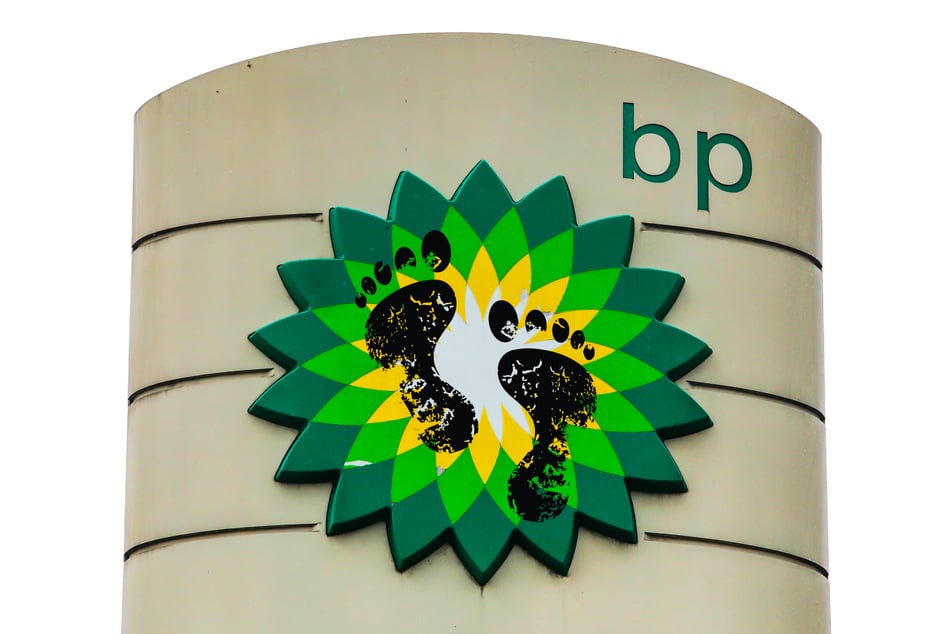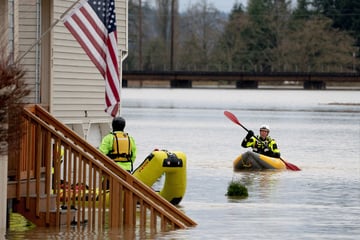Carbon footprint: How a Big Oil marketing strategy became a big part of the climate conversation
Reduce your carbon footprint, they said. It'll save the world, they said. But whose idea was that in the first place?

Well, it was British Petroleum's (BP) – one of the biggest of the big in the fossil fuel industry.
In 2004, BP worked with marketing company Ogilvy & Mather to create their carbon footprint calculator. That marketing company also worked with BP in 2001 to give the fossil fuel giant its sunflower-shaped logo, replacing its old shield logo.
This logo change, followed by the release of its carbon footprint calculator, was part of the company's efforts to appear more environmentally friendly.
This tactic had been used before. BP took a page from the same playbook as other industries.
Starting in the 1950s and 60s, the tobacco industry has placed the blame for nicotine addiction on smokers.
The plastic bottle industry put the responsibility for stopping plastic waste on consumers with its award-winning PSA from Keep America Beautiful in 1971.
And BP's 2004 marketing strategy worked. The term "carbon footprint" is an established part of climate change conversations.
BP's calculator has even been imitated by the Environmental Protection Agency, which built its own carbon footprint calculator.
Guides on how to reduce your carbon footprint abound, and all it takes is a search for "reduce carbon footprint guide" to find more guides than you could read in a day.
Footprints only take you so far

So why all this effort to reduce emissions?
The Intergovernmental Panel on Climate Change (IPCC) is your best source for answering that question. Its report makes it clear that fossil fuel emissions are driving climate change.
The IPCC also show what that change looks like: "Each of the last four decades has been successively warmer than any decade that preceded it since 1850."
NASA confirmed that 2020 tied with 2016 for the hottest year on record, peaking at 1.84 degrees Fahrenheit warmer than the 20th century average. The second-hottest was in 2019.
Some of the most recent examples of more severe weather events due to climate change just happened or are still happening.
Recent storms Ida and Henri left destruction behind on the East Coast. On the West Coast, the California Caldor fire and several other wildfires are still burning. Fire evacuation warnings and heat warnings have been issued for parts of California and Central Oregon.
A report by Nature showed what the fossil fuel industry needs to do to keep those weather events from getting worse.
At the very least, 60% of all oil and natural gas reserves have to remain untouched, and 90 percent of coal reserves need to stay in the ground in order to have a shot at stopping climate change.
Just so you can see how BP has been doing on that front, their production of oil and natural gas has been at or around two million barrels per day from 2011 through 2020.
That makes BP's strategy of shifting the focus to personal lifestyles all the more problematic. Urging people to have a smaller CO2 footprint only goes so far as long as society is still based on fossil fuels. There is a limit to how much you can reduce.
MIT researchers calculated the carbon emissions for a homeless person who ate in soup kitchens and slept in homeless shelters in the US. They found that even someone with nothing still has a carbon footprint of 8.5 tons of CO2 per year.
A different kind of individual impact
So is the idea of reducing your carbon footprint garbage if fossil fuel giants don't bother doing the same?
It is still a useful idea, but whether it actually works depends on having better options to actually reducing emissions. This boils down to voting, because elected officials and the ones they appoint have the biggest impact on what kind of choices are available in everyday life.
In all of this, it's important to keep one thing in mind: when it comes to where we are, the buck doesn't stop with "consumers." Whenever the term "carbon footprint" is used into making people feel guilty about not doing enough, remember how it came about – as a marketing ploy.
Cover photo: Imago/xJakubxPorzyckix, 123rf/mamanamsai
